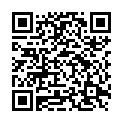|
|
|
| Module code: BSP-22 |
|
|
4S (4 hours per week) |
|
6 |
| Semester: 6 |
| Mandatory course: yes |
Language of instruction:
German |
Assessment:
BSP-22.1 or BSP-22.2: Presentations (R) (bn)
[updated 20.05.2020]
|
BSP-22 (P322-0004) Social work and early childhood, Bachelor, ASPO 01.10.2017
, semester 6, mandatory course
BSP-22 (P322-0004) Social work and early childhood, Bachelor, ASPO 01.10.2019
, semester 6, mandatory course
|
60 class hours (= 45 clock hours) over a 15-week period.
The total student study time is 180 hours (equivalent to 6 ECTS credits).
There are therefore 135 hours available for class preparation and follow-up work and exam preparation.
|
Recommended prerequisites (modules):
None.
|
Recommended as prerequisite for:
|
Module coordinator:
Prof. Dr. Kerstin Rock |
Lecturer:
N.N.
[updated 04.11.2017]
|
Learning outcomes:
After successfully completing this course, students will:
- be familiar with selected theoretical and empirical questions raised by social work in postmodern society. They will have gained insight into the complexity of social problems in postmodern society, can describe them and place them in a socio-structural context.
After successfully completing this course, students will:
_ be able to explain the social science concept of the social network and understand the influences of close and other social ties on personal development and individual experience and behavior.
_ have gained insight into central principles, methods and practical approaches of networking and network-oriented interventions.
_ be able to define the terms cooperation, coordination and networking and understand how institutional cooperation and networking can be used as professional and political coordination and control mechanisms.
_ be able to justify and critically reflect on the necessity of institutional cooperation and networking in social work and childhood education.
_ be able to identify the prerequisites and measures that must be taken for successful institutional cooperation and put them in relation to the tasks and instruments of network management.
_ be able to reflect upon current concepts/programs for cooperation/networking with players from the fields of education, health, culture and/or business with regard to their respective legal, organizational and curricular conditions, as well as the political interests behind them.
[updated 20.05.2020]
|
Module content:
Selected Theoretical and Empirical Issues
Content is dependent on specific theoretical and empirical questions about the demands placed on (social) educational action and social work organizations in postmodern society.
BSP-22.2 Seminar: Cooperation and networking
I. Social networks as a resource for people
_ Theoretical principles: The network concept in social sciences, social network theory, network analysis
_ The network perspective in social work and childhood education: Strategies for network-oriented intervention, concepts, procedures and practical approaches of social network work, promoting self-help
II. Institutional networks as professional and political coordination and control mechanisms
_ Cooperation, coordination and networking - clarification of terms, dimensions for the typification/characterization of networks, instruments for the description and analysis of institutional cooperations
_ Technical and legal cooperation requirements
_ General conditions for successful networking and cooperation, best practice examples
_ Steps towards establishing cooperations, network management
III. Concepts/programs for (cross-system, interdisciplinary) cooperation and networking in various fields of social work and childhood education
[updated 20.05.2020]
|
Teaching methods/Media:
- Exercises within the framework of the seminar
- Independent study: Reading and processing scientific literature
- Discussions in small groups and with the whole class (group work)
- Short presentations within the framework of the seminar (individual, group, as well as partner work)
- Exercises on seminar-specific topics and simulations
[updated 20.05.2020]
|
Recommended or required reading:
The literature for this seminar is based on the selected topics.
Bauer, P.; Ullrich, O. (Hrsg.) (2005). Mit Netzwerken professionell zusammenarbeiten. Bd. 1: Soziale Netzwerke in Lebenslauf-und Lebenslagenperspektive. Tübingen
Bauer, P.; Ullrich, O. (Hrsg.) (2005). Mit Netzwerken professionell zusammenarbeiten. Bd. Institutionelle Netzwerke in Steuerungs- und Kooperationsperspektive. Tübingen
Dahme, H.-J.; Wohlfahrt, N. (Hrsg.) (2000) Netzwerkökonomie im Wohlfahrtsstaat: Wettbewerb und Kooperation im Sozial- und Gesundheitssektor. Berlin
Fischer, J.; Kosollek, T. (Hrsg.)(2013). Netzwerke und Soziale Arbeit. Weinheim, Basel
Keupp, H.; Röhrle, B. (Hrsg.)(1987). Soziale Netzwerke. Frankfurt a.M.
[updated 20.05.2020]
|


